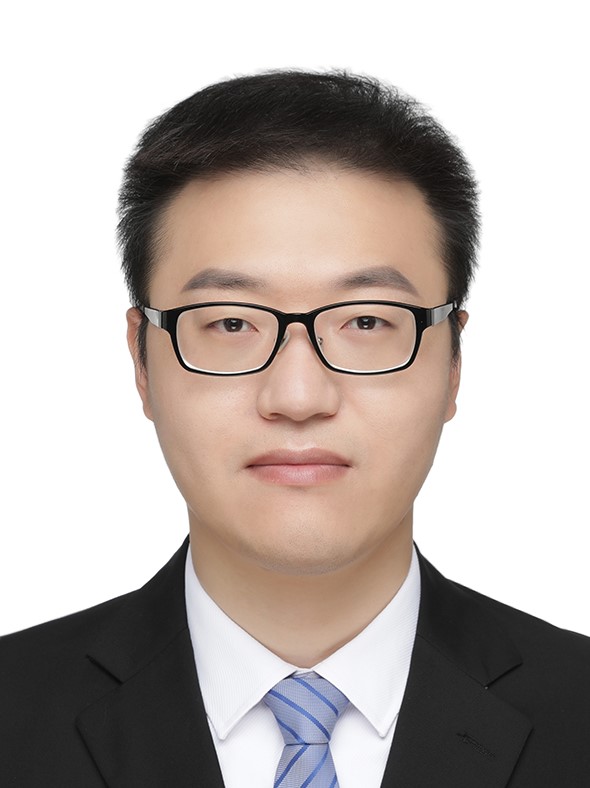
Changde Du
I am Dr. Changde Du, Associate Research Professor and Master’s Thesis Supervisor at the Institute of Automation, Chinese Academy of Sciences. My research lies at the intersection of artificial intelligence, cognitive science, and brain science, with a focus on AI for Brain Science, NeuroAI, and Brain-Inspired Intelligence. I have made significant contributions to neural encoding and decoding (based on fMRI, MEG, and EEG data), multimodal neural computing, joint modeling of vision-language-brain signals, and evaluation and interpretation of large-scale models.
I have published over 50 high-impact papers in top-tier journals and conferences, including Nature Machine Intelligence, IEEE TPAMI, ICLR, ICML, and CVPR. I am the principal investigator of several key research projects, including grants from the National Natural Science Foundation of China (NSFC), the Beijing–Xiaomi Joint Fund, the CAS Special Research Assistant Program, the CAAI–Huawei MindSpore Academic Award Fund, and a sub-task of the National Key R&D Program "New Generation Artificial Intelligence" (Science & Technology Innovation 2030).
As a core technical member, I have also contributed to major national initiatives such as the "Brain Science and Brain-Inspired Intelligence" program (Science & Technology Innovation 2030), NSFC Key Programs, and national key R&D projects. I regularly serve as a reviewer or program committee member for leading journals and conferences, including Nature Human Behaviour, IEEE TPAMI, NeurIPS, ICLR, and CVPR. I am a committee member of the Pattern Recognition and Machine Intelligence Technical Committee under the Chinese Association of Automation.
I have been invited to give talks at premier international conferences, including the Organization for Human Brain Mapping (OHBM), ACM International Conference on Multimedia (ACM MM), and the AAAI Conference on Artificial Intelligence. My research has received wide recognition, including the President’s Award of the Chinese Academy of Sciences, Beijing Outstanding Graduate, Top 100 Rising Stars in AI 2021, Best Paper Award (Runner-up) at IEEE ICME 2019, and has been featured in prominent technology media such as MIT Technology Review.
My research lies at the intersection of artificial intelligence, cognitive science, and brain science, with a focus on AI for Brain Science, NeuroAI, and Brain-Inspired Intelligence.
(1) National Natural Science Foundation of China (NSFC), General Program, 82272072, Research on Predicting the Severity of Cerebral Small Vessel Disease Using a Sparse Bayesian Linear Regression Model Based on Eye-Brain Cross-Modal Imaging, Jan 2023 – Dec 2026, 520,000 CNY, Ongoing, Participant
(2) National Natural Science Foundation of China (NSFC), Young Scientists Fund, 62206284, Research on Vision-Based Neural Information Encoding and Decoding Methods Integrating Visual and Semantic Features, Jan 2023 – Dec 2025, 300,000 CNY, Ongoing, Principal Investigator
(3) National Natural Science Foundation of China (NSFC), General Program, 61976209, Semantic Decoding and Visual Reconstruction of Brain Activity under Natural Scene Stimuli, Jan 2020 – Dec 2023, 610,000 CNY, Completed, Participant
(4) Ministry of Science and Technology (MOST), Science & Technology Innovation 2030 – "Brain Science and Brain-Inspired Intelligence" Major Project, 2021ZD0201503, Research on Brain-Inspired Auditory Front-End Models and Systems, Dec 2021 – Nov 2026, 4,000,000 CNY, Ongoing, Participant
(5) Ministry of Science and Technology (MOST), Science & Technology Innovation 2030 – "New Generation Artificial Intelligence" Young Scientist Program, 2022ZD0116500, Cognitive-Inspired Theory and Methods for Collaborative Evolutionary Learning in Intelligent Unmanned Systems, Mar 2023 – Feb 2026, 5,000,000 CNY, Ongoing, Participant
(1) Changde Du; Kaicheng Fu; Bincheng Wen; Yi Sun; Jie Peng; Wei Wei; Ying Gao; Shengpei Wang; Chuncheng Zhang; Jinpeng Li; Shuang Qiu; Le Chang; Huiguang He. Human-like object concept representations emerge naturally in multimodal large language models. Nature Machine Intelligence, 2025. (Journal Paper) (Author Note: Sole First Author)
(2) Changde Du; Kaicheng Fu; Jinpeng Li; Huiguang He. Decoding Visual Neural Representations by Multimodal Learning of Brain-Visual-Linguistic Features. IEEE Transactions on Pattern Analysis and Machine Intelligence, 2023, 45(9): 10760–10777. (Journal Paper) (Author Note: Sole First Author)
(3) Changde Du; Kaicheng Fu; Bincheng Wen; Huiguang He. Topographic representation of visually evoked emotional experiences in the human cerebral cortex. iScience, 2023, 26(9): 107571. (Journal Paper) (Author Note: Sole First Author)
(4) Changde Du; Changying Du; Lijie Huang; Haibao Wang; Huiguang He. Structured Neural Decoding With Multitask Transfer Learning of Deep Neural Network Representations. IEEE Transactions on Neural Networks and Learning Systems, February 2022, 33(2): 600–614. (Journal Paper) (Author Note: Sole First Author)
(5) Changde Du; Changying Du; Huiguang He. Multimodal Deep Generative Adversarial Models for Scalable Doubly Semi-supervised Learning. Information Fusion, April 2021, 68: 118–130. (Journal Paper) (Author Note: Sole First Author)
(6) Changde Du; Jinpeng Li; Lijie Huang; Huiguang He. Brain Encoding and Decoding in fMRI with Bidirectional Deep Generative Models. Engineering, October 2019, 5(5): 948–953. (Journal Paper) (Author Note: Sole First Author)
I have been invited to give talks at premier international conferences, including the Organization for Human Brain Mapping (OHBM), ACM International Conference on Multimedia (ACM MM), and the AAAI Conference on Artificial Intelligence. My research has received wide recognition, including the President’s Award of the Chinese Academy of Sciences, Beijing Outstanding Graduate, Top 100 Rising Stars in AI 2021, Best Paper Award (Runner-up) at IEEE ICME 2019, and has been featured in prominent technology media such as MIT Technology Review.
Copyright Institute of Automation Chinese Academy of Sciences All Rights Reserved
Address: 95 Zhongguancun East Road, 100190, BEIJING, CHINA
Email:brain-ai@ia.ac.cn